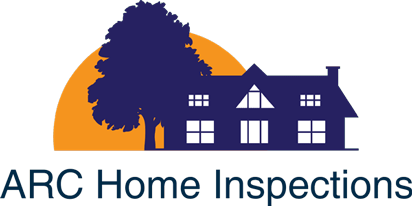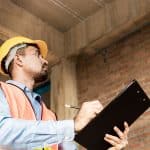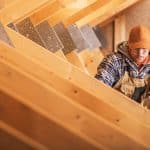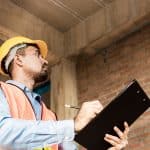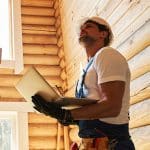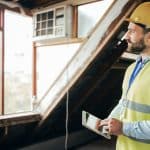First-Time Homebuyer? Here’s Why You Need a Home Inspection Service
First-time home buyers need a home inspection to uncover potential issues with the property that may not be visible during initial viewings, which can prevent costly repairs down the line. A thorough inspection provides valuable insights into the property’s condition, allowing buyers to make informed decisions and negotiate with the seller based on the findings.
Importance of a Home Inspection for First-Time Buyers
For first-time homebuyers, navigating the complexities of purchasing a property can be daunting, especially when considering what lies beneath the surface. A home isn’t merely walls and a roof; it’s an investment that demands careful scrutiny. By carrying out a home inspection, buyers gain an objective perspective on the condition of their prospective property. This is crucial because many structural or mechanical problems are not visible during casual walk-throughs, and overlooking these can have serious financial implications.
The importance of this proactive approach cannot be overstated. Imagine moving into your dream home only to realize that the roof needs replacing or that the HVAC system is outdated and inefficient. Not only does this compromise your comfort, but it also drains your finances significantly more than anticipated. On average, necessary repairs identified during inspections can cost upwards of $14,000—expenses that are often unexpected and unexpected.
Moreover, having a comprehensive understanding of property conditions allows buyers to negotiate from a position of strength during purchase discussions.
Furthermore, conducting an inspection can also bring peace of mind. Many buyers feel anxious transitioning into new homes, worrying whether they made the right choice. Understanding that major issues will likely be addressed before finalizing the sale alleviates some concerns while allowing them to focus on personalizing their new space without immediate unease about hidden maintenance catastrophes.
With such transformative benefits surrounding financial security and peace of mind from inspections, let’s consider how this essential step leads us to discover potential issues and defects that may lie ahead.
Identifying Potential Issues and Defects
When you’re about to make one of the most significant investments of your life, knowing what to look for is essential. Home inspectors are trained to identify a range of problems that could affect your comfort, safety, and the value of your new home. Many people underestimate how much can go wrong in a home that appears perfect on the surface. Hidden defectscan lead to financial burdens down the road if not identified early on.
Commonly Found Issues
Inspectors often uncover a variety of problems. Roofing issues are among the top concerns; leaks or missing shingles can indicate the need for costly repairs. Imagine moving in, excited about your new space, only to discover that water has been seeping into your attic due to an undetected roof leak.
Then there are outdated electrical systems, which may fail to meet current safety standards, creating fire hazards or malfunctioning appliances.
Structural issues like cracks in the foundation or walls might be less visible but can severely undermine your home’s safety over time. Lastly, homeowners often overlook HVAC inefficiencies; an outdated heating or cooling system can drive up utility bills significantly.
During a home inspection, especially in Cuba, it’s vital to pay close attention to these areas. Knowledge is power, and being aware of typical defects empowers first-time buyers when negotiating repairs or price adjustments with sellers.
Embracing insights from a well-conducted inspection lays the groundwork for understanding how professionals play their part in this critical process of home buying.Role of the Home Inspector
A home inspector serves as both a detective and an advisor in the complex journey of home buying. Their purpose extends beyond merely identifying visible flaws; they explore the underlying systems of the home to ensure that each component is functioning properly. By doing this, they provide invaluable peace of mind for buyers who are taking on one of life’s most significant financial commitments.
Detailed Evaluations
- Roof: Inspectors check for mold, water leakage, and structural damage. They examine shingles, flashing, and gutters to determine the roof’s overall health.
- HVAC: Evaluations ensure heating, ventilation, and air conditioning systems are running efficiently. This involves checking system age, filters, and possible maintenance needs.
- Plumbing: Inspections capture issues in pipelines, sewage lines, and fixtures. Inspectors look for leaks and water pressure issues that could lead to costly repairs down the line.
- Electrical: Faulty wiring and overloaded circuits are identified. An inspector will assess outlets, breakers, and ground fault circuit interrupters (GFCIs) for safety compliance.
- Foundation: Structural integrity and potential cracks are scrutinized. Inspectors evaluate settlement patterns and visible damage that might compromise the house’s stability.
Each of these assessments contributes to a comprehensive view of the property. Buying a home is not just about aesthetics or location; it’s about ensuring that there are no hidden dangers that could impact your safety or financial investment.
Negotiation Leverage
One of the most significant advantages of an inspection report lies in its role as a negotiation tool. When buyers identify issues—be it minor repairs or major concerns like foundational problems—they gain the ability to address these directly with the seller. Imagine discovering that the roof has extensive wear; such findings can lead buyers to negotiate either for the seller to repair the roof before closing or for a substantial price reduction to cover future expenses related to fixing it. This kind of negotiation could potentially save thousands.
Engaging with this process not only strengthens immediate circumstances but establishes a framework for successful and sustainable living in one’s new residence.
Long-Term Investment and Safety
Ensuring a home is free from significant defects isn’t just about immediate financial savings; it’s about comprehensive long-term investment and the safety of its occupants. A well-maintained property is akin to a sturdy ship navigating through storms; it may face challenges, but with the right support, it can weather them effectively. When you invest in regular inspections,including home inspection in Cuba, you are essentially securing your home against future uncertainties—both structural and financial.
Future-Proofing Your Home
Regular home inspections, even after the initial purchase, are vital for maintaining the property’s structural integrity and market value. Homeowners should not perceive these inspections merely as paperwork; they are essential checkpoints that provide peace of mind. These evaluations act as a health report for your home—detecting early signs of deterioration like roof damage or plumbing issues before they escalate into expensive repairs.
Next, we will explore insights from industry experts who can provide valuable guidance on navigating this critical process.
Expert Advice and Recommendations
When you choose a home inspector, you’re not just hiring someone to check off a list of potential problems; you’re gaining access to a wealth of knowledge that can help maintain the integrity and safety of your home for years to come. At arc-homeinspections.com, inspectors provide tailored guidance that goes beyond mere assessments. This personalized approach enables homeowners to prioritize repairs based on immediate needs and long-term implications.
Tailored Guidance
To illustrate how this works, imagine you’ve just purchased an older home. After conducting a thorough inspection, the inspector highlights issues such as aged roofing materials, outdated electrical systems, or signs of minor water damage. Following their evaluation, they might advise you to focus on upgrading to energy-efficient windows first, enhancing comfort and significantly reducing utility costs. Dealing with those minor foundation cracks now could save you from major repairs down the road if left unaddressed.
This proactive guidance empowers homeowners to allocate resources wisely and make informed decisions in maintaining their spaces. Some recommendations extend beyond repair work; they could also suggest routine maintenance practices that enhance your home’s longevity and livability. For instance, regular gutter cleaning and landscaping checks can prevent water intrusion and erosion.
With valuable advice at your fingertips, you’ll feel empowered as a first-time homebuyer or experienced homeowner embarking on renovations. Inspections are about understanding your home’s strengths and weaknesses while maximizing its potential.
As a first-time homebuyer, ensuring your new home is in excellent condition is crucial. A detailed home inspection can uncover potential issues before they become costly problems. ARC Home Inspection is here to help you make informed decisions about your home purchase. Our expert team offers thorough home inspection services in Cuba, giving you peace of mind. Don’t skip this essential step in the home-buying process. Schedule an appointmenttoday with ARC Home Inspection and safeguard your future home with a reliable home inspection in Cuba!
